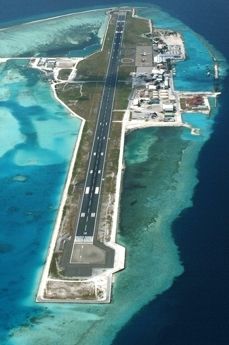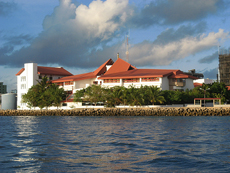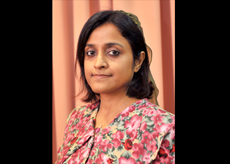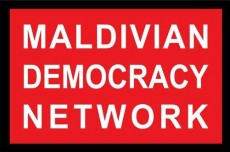Twenty-six days into the administration of President Abdulla Yameen, state institutions have been unveiling plans to commence or to resume projects within a 100 day period of the government’s November 17 inauguration.
A number of ‘roadmaps’ have emerged in the transport, health, and immigration. Similar lists of projects have also been devised for customs, the police, and the military.
Transport and communication
 On December 8, the Transport and Communication Ministry revealed that it would finish drafting plans and begin the groundwork within a 100 days to develop the Ibrahim Nasir International Airport (INIA) to be able to cater to 5 million passengers.
On December 8, the Transport and Communication Ministry revealed that it would finish drafting plans and begin the groundwork within a 100 days to develop the Ibrahim Nasir International Airport (INIA) to be able to cater to 5 million passengers.
Plans were also made to introduce the nighttime landing of flights in Thimarafushi and Fuvahmulah airports within this period.
In the field of land transportation, the ministry pledged to improve local ports, connect islands via seaplane transport and to improve ferry services between atolls.
There are further plans to establish a broadband internet policy and to provide fast-speed internet to all inhabited islands. Besides this, the plan also includes the introducing number portability between the two telecom service providers currently available in the country.
Transport Minister Ameen Ibrahim said that the government’s object was to make the Maldives the most advanced among the SAARC countries in the field of communication.
The government has also announced its intention to build a bridge between Hulhule’ – the airport island- and capital Male’, and have requested proposals from interested companies.
Health
Just a week after the new administration was established, Vice President Dr Mohamed Jameel Ahmed announced that the government had begun to solve issues in providing health services to the people.
Visiting the sole state-owned hospital – IGMH – in capital city Malé on November 24, Jameel announced that the government would begin fulfilling its health policies “as soon as we get the budget for it”, adding that this would include revamping the Aasandha insurance scheme and training nurses and doctors.
Early in December, prior to the appointment of a health minister, President’s Office Minister Abdulla Ameen announced that chemotherapy treatment for cancer patients would be introduced within the first one hundred days.
Stating that the lack of the service forced many Maldivians to live abroad for medical purposes, Ameen said that the introduction of chemotherapy facilities in the country was crucial. He added that screening to diagnose cervical cancer would also be introduced -both under a government insurance scheme.
Echoing Ameen’s assurances of fast development to IGMH, Health Minister Mariyam Shakeela said at a press conference held today that the government was drafting a policy to “bring major development to IGMH in a very short period of time to an extent never before seen”.
held today that the government was drafting a policy to “bring major development to IGMH in a very short period of time to an extent never before seen”.
She said that this included a complete renewal of the management figures at the hospital.
The minister further revealed that the government had decided to transfer specialist doctors to the atolls for a period of time which would be allocated by the ministry.
Shakeela stated that funds for development are included in the budget, and that the government is also seeking aid from international donors for some of the projects. She hoped that such developments would lead to “decreasing the burden on Aasandha”.
Shakeela promised that the full 100 day programme would be revealed next week.
Immigration
Immigration Controller Hassan Ali announced on December 5 that the institution’s biggest focus in the first 100 days of Yameen’s government would be to control the issue of illegal immigrants.
The plan itself includes work to offer illegal immigrants a chance to change employees, and increasing the number of illegal immigrants who will be deported in 2014.
The immigration controller also revealed plans to establish an online system of obtaining work visas from Kulhudhuhfushi, establishing a single office to deal with all migrant related work, and a mechanism where e-passports can be issued from two areas of the country.
Customs, Police and Military
The Maldives Police Services has also created a roadmap of goals they will work to achieve in the first 100 days of the Yameen administration.
On December 9, police revealed that the foremost goal in this roadmap is to complete investigation of 80 per cent of ongoing cases – the total amount of which was not specified – and to forward them to the Prosecutor General’s office.
Other goals include completion of investigation into small and petty crimes within a 30 day period, pre-emptive identification and intervention in cases of intention to commit crimes, and the setting up of additional security cameras in Male’ and Addu City.
Police will also be working to eradicate sexual abuse of children, and to establish what they have termed ‘be ready camps’ to achieve this goal in two atolls.
Facilitating youth employment by helping to get sea vessel driving licences, increasing women’s employment in the policing field to 50 percent, and the establishment of a juvenile detention centre is also included among the listed aims.
The roadmap also includes internal work like the establishment of a new system to address complaints against police officers, the creation of a police clinic for health support to officers and their families, and the compilation of a four-year strategic plan on professional development of the force.
Police, together with customs, have also initiated programs to tackle the illegal import and abuse of narcotics and serious and organised crimes.
Customs – which has also revealed a roadmap for the same period – have on December 12, expressed concern that budget limitations may prove to be an obstacle in the realisation of their goals.
Commissioner General of Customs Ahmed Mohamed stated that the budget cuts would affect the institution’s reaching of its objectives, including the provision of more convenient online services.
 Maldives National Defence Force (MNDF)’s 100 day strategic plan includes the submission of various amendments to relevant laws – including the Armed Forces Act and Narional Security Act – to the parliament, and the establishment of a ‘justice system’ within the force.
Maldives National Defence Force (MNDF)’s 100 day strategic plan includes the submission of various amendments to relevant laws – including the Armed Forces Act and Narional Security Act – to the parliament, and the establishment of a ‘justice system’ within the force.
The plan further consists of a variety of other projects, including the addition of a helicopter and landing crafts to its fleet, and the establishment of fire stations in the islands of Kahdhoo and Naifaru.
The military intend to lay the foundation for a new eight story building where the current Coast Guard offices are, to conduct additional international training for officers – especially with the Indian Army, to provide medical care at low fees for general citizens at the Senahiya military hospital, and the establishment of a day care centre for the use of officers and families.
Likes (0)Dislikes
(0)Dislikes (0)
(0)  On December 8, the Transport and Communication Ministry revealed that it would finish drafting plans and begin the groundwork within a 100 days to develop the Ibrahim Nasir International Airport (INIA) to be able to cater to 5 million passengers.
On December 8, the Transport and Communication Ministry revealed that it would finish drafting plans and begin the groundwork within a 100 days to develop the Ibrahim Nasir International Airport (INIA) to be able to cater to 5 million passengers. held today that the government was drafting a policy to “bring major development to IGMH in a very short period of time to an extent never before seen”.
held today that the government was drafting a policy to “bring major development to IGMH in a very short period of time to an extent never before seen”. Maldives National Defence Force (MNDF)’s 100 day strategic plan includes the submission of various amendments to relevant laws – including the Armed Forces Act and Narional Security Act – to the parliament, and the establishment of a ‘justice system’ within the force.
Maldives National Defence Force (MNDF)’s 100 day strategic plan includes the submission of various amendments to relevant laws – including the Armed Forces Act and Narional Security Act – to the parliament, and the establishment of a ‘justice system’ within the force. Meanwhile, Minister of Foreign Affairs Dunya Maumoon stated that the Maldives has given “greater impetus and focus to strengthening our systems and institutions to better safeguard human rights and fundamental liberties” since former President Maumoon Abdul Gayoom began the introduction of democratic governance in the country in 2004.
Meanwhile, Minister of Foreign Affairs Dunya Maumoon stated that the Maldives has given “greater impetus and focus to strengthening our systems and institutions to better safeguard human rights and fundamental liberties” since former President Maumoon Abdul Gayoom began the introduction of democratic governance in the country in 2004. maintaining that it is the result of having an elected government in place after a politically turbulent period.
maintaining that it is the result of having an elected government in place after a politically turbulent period.